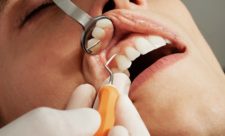
The microbiome in our gut plays a key role in our wellbeing. Our general health status, digestive troubles, skin conditions, evidence of autism, diabetes, and age-related diseases – all of this may be connected to the bacterial diversity in our gut (gut flora).
In several international research projects, scientists also looked into the issue of how the microflora in the gut may be used to determine someone’s age. So far, the results have already shown that the composition of microbiome changes over a person’s lifetime. “The gut microbiota can be likened to a human organ. It ages just as people grow older”, writes Christina Hohmann-Jeddi in the Pharmazeutische Zeitung. Shifts in bacterial composition may lead to a proinflammatory (i.e. stimulating inflammatory responses) status, which apparently increases the likelihood of typical age-related diseases.
In Rockville (Maryland US), scientists found that as people aged, some bacteria like Eubacterium hallii became more abundant. Other bacterial species, e.g. Bacteroides vulgatus, seemed to decrease in number as people grow older.
According to researchers at Harvard University, these shifts correlate with changes in diet, sleep habits, and physical activity. “It is likely that behavioural changes trigger an adaptation of the microbiome, rather than the microbiome controlling people’s ageing,” notes the Pharmazeutische Zeitung. This is in line with findings that the microbiome of the oldest seniors (with an age of 100 years and more) shows significant differences to that of younger senior citizens. Among super-centenarians, health-relevant bacterial species such as Bifidobacterium or Akkermansia were significantly more prevalent.
The next step in research would be to examine how the microbiome could be used as a biomarker for a person’s biological clock. Currently discussed is a selective treatment with specific probiotics to positively influence the gut microbiota, prevent typical age-related diseases, and increase longevity.
Sources:
https://www.aponet.de/aktuelles/kurioses/20200213-mikrobiom-verraet-das-alter.html
https://www.pharmazeutische-zeitung.de/das-mikrobiom-als-biologische-uhr/seite/2/
https://www.pharmazeutische-zeitung.de/ausgabe-282018/alterungsprozess-im-darm/
Dieser Post ist auch verfügbar auf: German

 24. Apr 2020
24. Apr 2020 Popular
Popular Recent
Recent Comments
Comments












